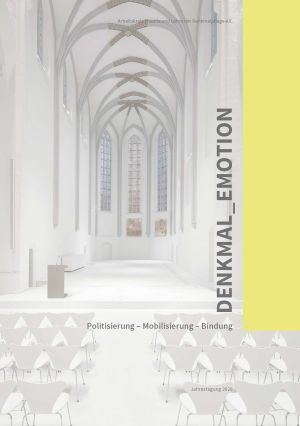How to Cite
Published
Zeit, dass sich was dreht
Denkmalpflege und Windenergieanlagen
This essay examines the relationship between heritage conservation and wind turbines, which have proven to be a highly emotional issue in both the public and the professional discourse. Due to their numbers and their large size, turbines have in some cases had a significant effect on the landscape; this effect is often described solely in terms of their visual impact, however, which is generally perceived by conservationists as disruptive. Yet when viewed in functional terms, it is clear that wind energy has now become an essential component of Germany’s power-generation mix and that the country’s almost 30,000 wind turbines meanwhile represent not just a potential but a very real element of the cultural landscape. Older models in particular can be read as material witnesses to the significant changes in energy policy that have taken place since the 1970s – which is why it is becoming necessary for heritage conservation to engage with this category of structure. It is above all among the examples from the 1980s that potential heritage monuments may be found. Continuing to limit the discussion to the disruptive aspects of turbines, on the other hand, opens opportunities for the abuse of conservation arguments in a discourse that is often polemical and polarizing in tone, on both sides of the debate. Taking this observation as a starting point, it is argued that in politically polarized times such as ours, a case-specific, nuanced and scholarly perspective should provide the essential basis for conservation practice, so that a narrowing of our outlook as well as the abuse of our arguments can be avoided.








